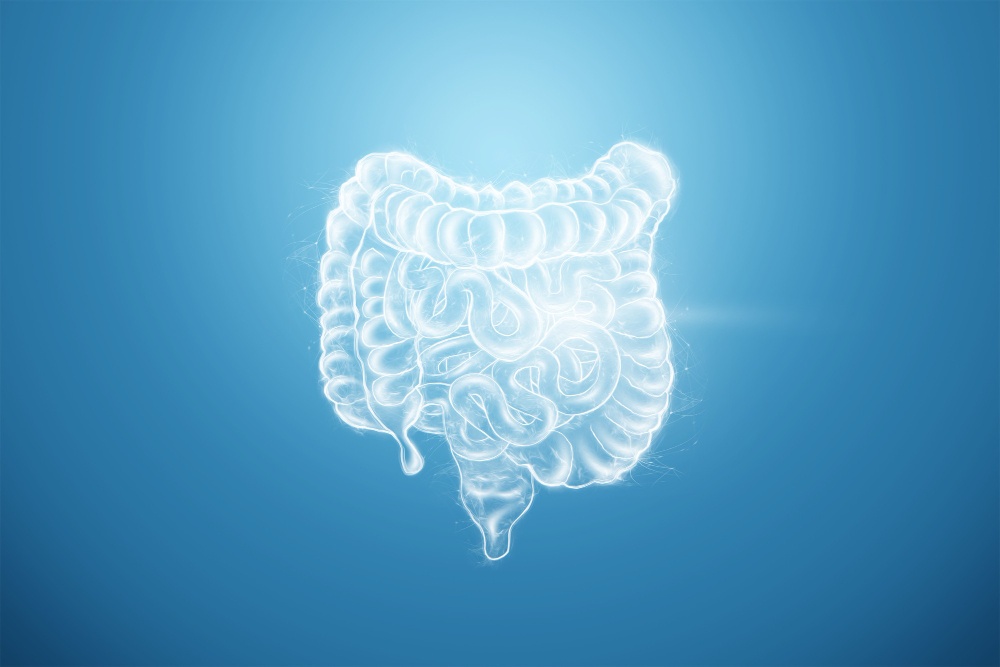
Introduction: Why Nutrition and Gut Health Matter for Sleep
Sleep is a critical biological function that supports cognitive performance, metabolic regulation, and immune competence. Growing evidence underscores a complex, bidirectional relationship between sleep, diet, and the gut microbiota—an ecosystem of trillions of microorganisms inhabiting the gastrointestinal tract. This interplay, often referred to as the gut–brain–sleep axis, operates through several physiological pathways, including the production of microbial metabolites such as serotonin and gamma-aminobutyric acid (GABA), both of which influence sleep architecture and quality.1
Sleep disturbances can, in turn, disrupt gut microbial composition, leading to dysbiosis. Conversely, an imbalanced gut microbiota can impair sleep quality, creating a self-perpetuating cycle of physiological stress and dysfunction. Circadian rhythms further modulate this interaction by influencing both sleep regulation and gut barrier integrity through gene expression and hormonal signaling. The increasing recognition of the gut microbiome’s role in sleep disorders has opened the door to novel, nutrition-based interventions—including probiotics, prebiotics, and dietary timing strategies. Together, these insights position nutrition and gut health as underappreciated but potentially powerful levers in improving sleep quality and overall health.2
Nutritional Factors That Influence Sleep
Dietary composition and eating behaviors significantly influence sleep via direct and indirect mechanisms involving neurotransmitter synthesis, metabolic control, and circadian alignment.
Certain substances are known to disrupt sleep architecture. Caffeine, by antagonizing adenosine receptors, delays sleep onset and reduces total sleep time. Alcohol, although initially sedating, disrupts REM sleep and contributes to sleep fragmentation. Diets high in refined sugar and processed carbohydrates lead to postprandial blood glucose instability, which is associated with poor sleep continuity. High-fat diets have also been linked to delayed sleep onset and reductions in slow-wave sleep—the restorative phase critical for cellular repair and memory consolidation.3,4
In contrast, specific nutrients support sleep regulation. Tryptophan, an essential amino acid, is a precursor to serotonin and melatonin and has been shown to facilitate sleep initiation. Magnesium, zinc, and vitamin B6 are involved in neurotransmitter synthesis and synaptic transmission, essential for sleep onset and maintenance. Complex carbohydrates enhance tryptophan transport across the blood–brain barrier, and polyunsaturated fatty acids support melatonin production and circadian gene expression.5
Meal timing is increasingly recognized as a crucial factor in sleep health. Late-night eating disrupts circadian rhythm and impairs melatonin secretion, whereas aligning food intake with circadian cues—an approach known as chrononutrition—has been associated with improved sleep quality. Emerging dietary strategies such as time-restricted feeding (TRF) and intermittent fasting show promise in optimizing circadian alignment, reducing nighttime wakefulness, and enhancing overall sleep efficiency.6
Collectively, these findings reinforce the view that dietary choices and habits are modifiable determinants of sleep quality and that nutritional interventions offer a practical, non-pharmacologic avenue for improving sleep outcomes.
The Gut Microbiota’s Role in Sleep Regulation
The gut microbiota plays a central role in sleep regulation through the microbiota–gut–brain axis, which connects the gastrointestinal tract and central nervous system via neural, endocrine, and immune pathways. Key gut-derived metabolites, including short-chain fatty acids (SCFAs) like butyrate, influence immune modulation, neurotransmitter production, and circadian rhythm regulation.
Several gut microbes synthesize or modulate neurotransmitters directly relevant to sleep. For example, Lactobacillus and Bifidobacterium strains are involved in the production of GABA, while serotonin—of which approximately 90% is produced in the gut—plays a vital role in the sleep–wake cycle. These microbes also interact with the hypothalamic-pituitary-adrenal (HPA) axis, regulating the body’s response to stress and, consequently, sleep quality.7
Sleep deprivation and chronic circadian disruption have been shown to reduce microbial diversity and promote dysbiosis, leading to increased gut permeability, systemic inflammation, and further sleep impairment. This bidirectional relationship underscores the importance of maintaining a healthy gut microbiome as both a preventive and therapeutic strategy.8
Recent clinical studies have explored the effects of probiotics and prebiotics on sleep quality. Probiotic supplementation has been associated with improvements in sleep latency, efficiency, and duration, likely through enhanced SCFA production and anti-inflammatory effects. The emerging field of psychobiotics—microbial interventions that affect brain function—offers an exciting frontier for treating sleep and mood disorders through targeted modulation of the gut microbiome.9,10
Ultimately, these insights highlight the gut microbiota as a promising therapeutic target for optimizing sleep health and underscore the need for further research into microbial-based diagnostics and interventions.
Conclusion: Toward Gut-Targeted Sleep Medicine
The emerging science of the gut–brain–sleep axis highlights a powerful, underrecognized connection between nutrition, microbiota, and sleep regulation. Disrupted sleep and poor diet are often intertwined through shared pathways involving inflammation, neurotransmitters, and circadian rhythms. As research advances, strategies like chrononutrition, targeted probiotics, and microbial metabolite-based interventions offer promising, non-pharmacologic tools for improving sleep health. Integrating these insights into clinical practice may help address sleep disorders more holistically—through the gut.
Reference:
Niazi, Madiha Khan, Hassan, Farooq, Tufail, Tabussam, ismail, Muhammad Amjed, Riaz, Khadija, The Role of Microbiome in Psychiatric Diseases (Insomnia and Anxiety/Depression) with Microbiological Mechanisms, Advanced Gut & Microbiome Research, 2023, 1566684, 9 pages, 2023. https://doi.org/10.1155/2023/1566684
Jun Wu, et al. Associations between gut microbiota and sleep: a two-sample, bidirectional Mendelian randomization study. Frontiers. 2023
Burke TM, et al. Caffeine effects on sleep taken 0, 3, or 6 hours before bedtime. J Clin Sleep Med. 2013.
Ebrahim IO, et al. Alcohol disrupts sleep homeostasis. ScienceDirect. 2014.
Sleep Foundation. Nutrition and Sleep: Diet's Effect on Sleep. 2024.
Alcohol & Me. Facts about drinking that will keep you awake at night. 2024.
Gao X, et al. Gut microbiota and sleep: Interaction mechanisms and therapeutic opportunities. Front Cell Infect Microbiol. 2024 Jul 18; [PMC11260001]
Wang J, et al. Associations between gut microbiota and sleep: a two-sample Mendelian randomization study. Front Microbiol. 2023 Aug 14; [PMC1236847]
Yu X, et al. Gut microbiota modulation by fermented milk enhances sleep quality via GABA production. J Nutr Biochem. 2023; [PMC]
Institute for Functional Medicine. Sleep dysfunction and the microbiome: emerging treatments. 2024.







Post comments